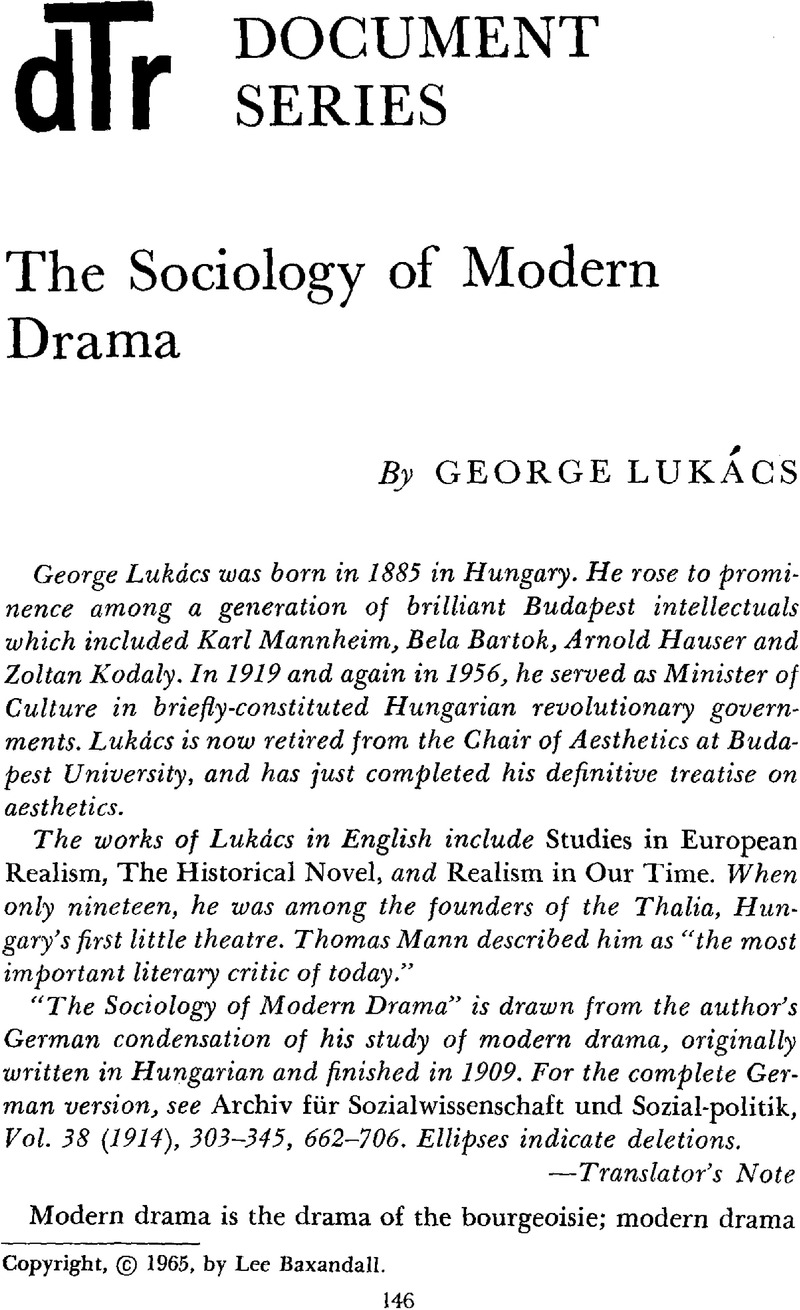Published online by Cambridge University Press: 13 October 2022

1 Discussed in detail in a portion of the essay here omitted, which dealt chiefly with development of the stage as an institution. Lukacs argues that truly bourgeois plays were first written by the Germans Lenz, Grabbe, Goethe, Schiller, and others who were the first dramatists to develop historicist ideas. Emphasis upon reasoned argument, together with environmental determinism, is seen to distinguish bourgeois playwrights from their predecessors, who had enjoyed spontaneous communication with their audiences by virtue of shared religious sensibility. According to Lukacs, this unity was shattered by a new rationalism, introduced to society by the bourgeoisie's organization of economy and social relations along the most productive lines. The playwright found himself isolated from the broad public; he produced intellectualist compositions for minority audiences, while the public, cut off alike from the rationalist stage and from religious drama, sought theatre offering amusement for its own sake. The Little Theatre movement which emerged after 1885 sought to provide bourgeois drama with a stage, but with poor results.—Translator's note.